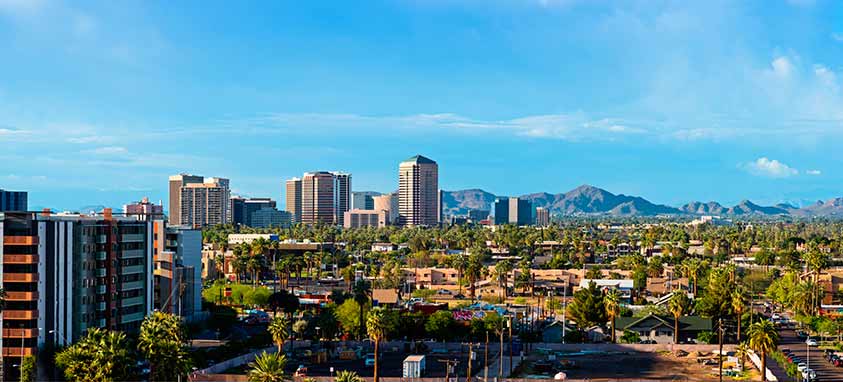Out of several major metropolitan cities in the U.S., Phoenix has been identified in a national survey as having a large percentage of Airbnb hosts renting properties for more than 30 days, as well as a substantial number of multi-unit operators who rent two or more units. Research was released this week by the American Hotel & Lodging Association (AH&LA) in a two-part study that explored revenue trends behind the $24 billion home-sharing company.
Data reveals that up to 85 percent of Airbnb hosts in Phoenix could be operating illegally by renting properties for more than 30 days a year, which accounts for more than $41 million—the majority of Airbnb’s profits from the state. Approximately 14 percent of operators in the city listed properties available to rent for more than 180 days per year, generating $9 million in annual revenue. And a smaller figure—about 1 percent—offered units to rent throughout the year, contributing around $2 million.
The study also indicates that 14 percent of hosts in the Phoenix area operate multiple rental units. However, they contribute more than $17 million, which is about 40 percent of Airbnb’s total statewide revenue. Data surrounding the growth of multi-unit operators has become a contentious issue among state lawmakers across the country. Last fall, Airbnb narrowly dodged a ballot measure that would have greatly restricted short-term rentals in its hometown of San Francisco.
Arizona has gone the other direction. Earlier this month, the state senate approved a bill that would make it easier for Airbnb and other home-rental services to operate in the state. According to The Arizona Republic, the bill would allow Airbnb to collect state lodging taxes on behalf of property owners, keeping home rentals on par with the hotel occupancy tax.
Researchers from Pennsylvania State University’s School of Hospitality Management conducted the year-long study from October 2014 to September 2015, which was commissioned by AH&LA. The national association, which represents the U.S. lodging industry, has remained staunchly opposed to Airbnb’s unregulated services and encroachment on the hotel industry. Katherine Lugar, AH&LA president and CEO, released a statement on the role of Airbnb in the travel market place.
“Illicit and often illegal hotels operated in residential properties are disruptive to communities and pose serious safety concerns for guests, for communities and for neighborhoods,” she said. “Until Airbnb demonstrates that it can be a trusted and constructive partner in the effort to protect the communities it operates in and the travelers it serves, state and local governments must act to ensure a fair and safe travel market place by closing the illegal hotel loophole.”
The first part of the nationwide report, released earlier this year, took inventory of monthly host revenue and found that nearly 30 percent of the company’s revenue came from full-time hosts who list properties throughout the year in 12 of Airbnb’s largest U.S. markets. The number of multi-unit operators is rapidly growing; they make up nearly 40 percent of Airbnb’s profits, totaling half a billion dollars a year.




